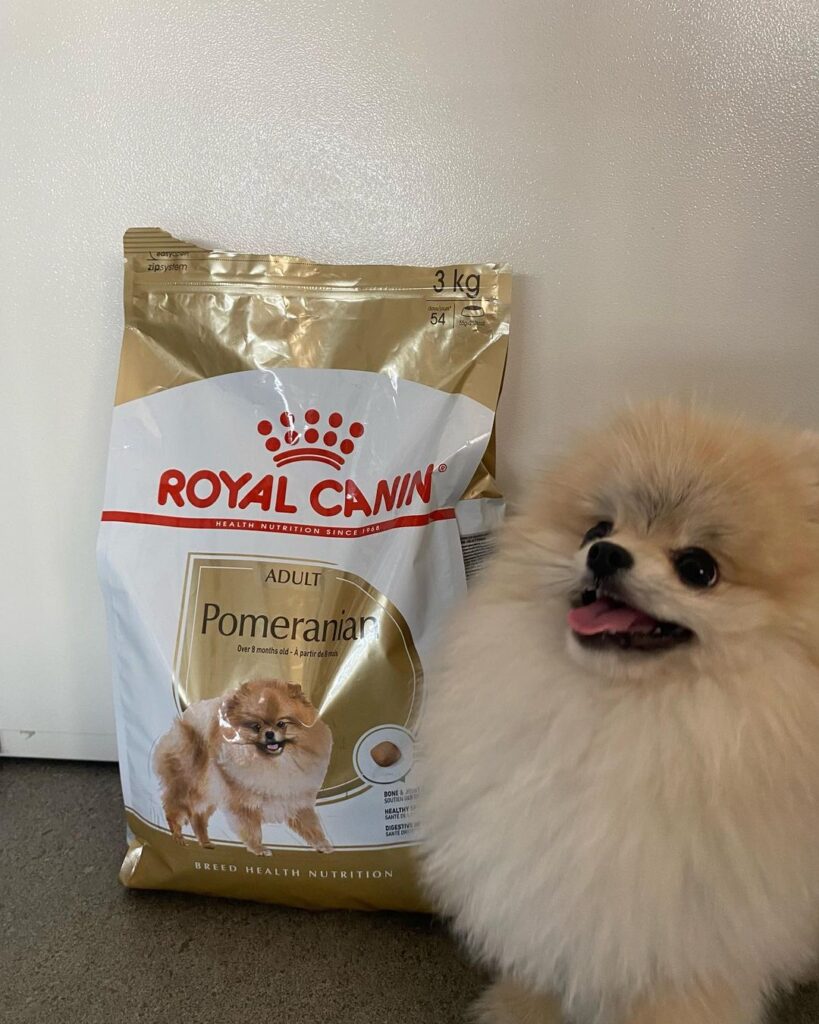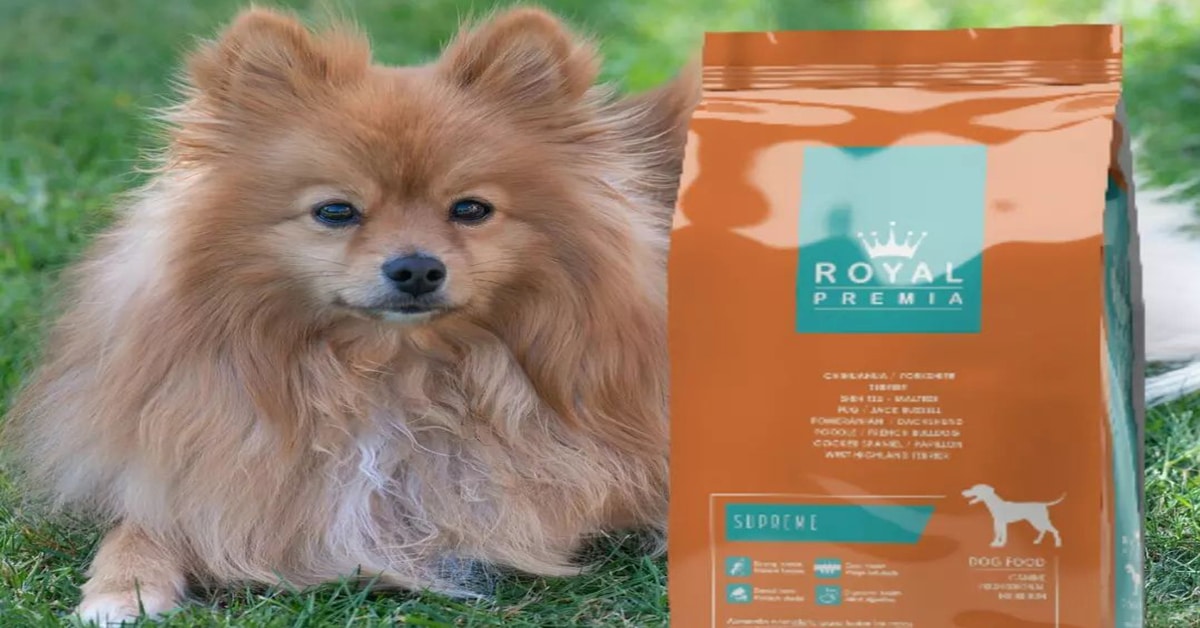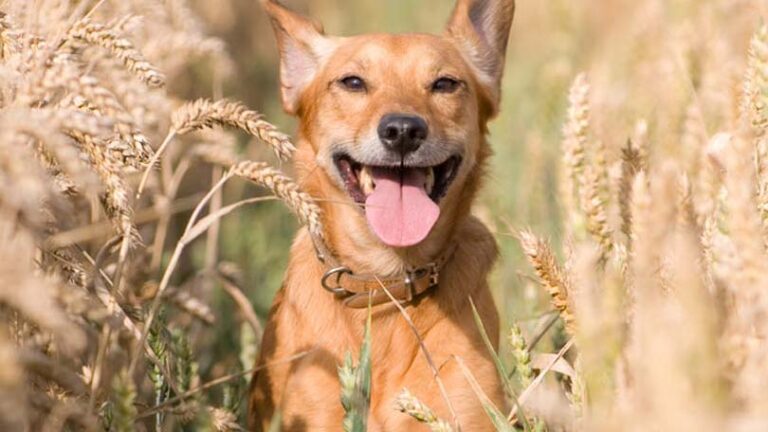Best Foods For Pomeranians – Tips About Healthy Meal Options
Pomeranians are real extroverts in the animal kingdom and make wonderful family pets as well as companion animals. They are an excellent breed for city living because of their small stature. Additionally, who wouldn’t like that gorgeous smile? It’s crucial to understand your dog’s nutritional needs if you want to keep him healthy. He should have suitable food for his well-being and healthy development at all phases of his life.
What are the best foods for Pomeranians? How much food do they need to survive? How frequently should you feed them? In this article, all the important subjects are covered.

What Are the Best Foods For Pomeranians?
Each owner has their own opinions, which is why Pomeranian dogs are a particularly contentious subject of discussion. Pomeranians belong to the family of toy breeds, and like Yorkies and Chihuahuas, they can have large personalities for their size. They are vigilant and very active, even though their small stature doesn’t require as much food as a larger breed does.
You may help them have a fun-loving lifestyle by feeding them meals that are rich in nutrients and minerals. Some of the best foods for Pomeranians are high-quality proteins. Such dog foods include:
Preservatives, additives, byproducts, and fillers should not be included in the meal you are providing. Many manufacturers of commercial dog food like to conceal them in the hopes that you won’t notice.
Make sure to ask the breeder where your Pomeranian comes from and what they’ve been consuming up to this point. The same is true if you got your dog from a rescue. They’ll be able to tell you what kind of dog food they’ve been feeding. Be sure you know how to transition your dog’s food properly if you decide to move to a different kind.
To make sure your Pomeranian is getting the correct number of calories for their size, age, and activity level, you must provide the proper amount of food.
Dogs have the same ability to create preferences as people do. For instance, while some dogs enjoy a full breakfast, others prefer a hearty dinner. Both are acceptable.
If you’re feeding your Pomeranian grain-free dog food, be sure the fiber content isn’t too high. The bulk of dog meals with grains typically include around 4% fiber.
A, D, E, and K vitamins can be absorbed more easily with the help of essential fatty acids. Animal fats are better for your dog than fats derived from plants. Your Pomeranians will rarely ever be able to healthily digest plant-based fats. The top fat sources for your dog’s diet are fatty chicken and fish.
Dry Or Wet Food
So, what are the best foods for Pomeranians, the ones that are dry or wet? Some people advise feeding your Pomeranian dog mostly dry food. If he continues to be resistive, mix some low-sodium beef or chicken broth with the dish or put it on top.
Never offer rawhide treats to your Pomeranian. He might experience internal and external allergic reactions from them. Additionally, they can harm his teeth and jaw, resulting in foul breath and affecting his digestion.
Are Home Cooked Meals Best Foods For Pomeranians?
Many of the ingredients and items you would use to feed your dog are already items you would typically buy for yourself. Simply purchase a few additional items for your dog’s meals, and you can make them yourself. You can make the best foods for Pomeranians at home.
If you want to avoid cooking just for your dog every day, you may also create larger quantities and freeze them in smaller portions. This is not the same as giving your dog leftovers from the dinner table. You are in charge of the nutrition your dog consumes, so you can make sure he stays healthy.
Home Cooked Dog Meals
Home Cooked meals can be considered the best foods for Pomeranians. The most essential item for your dog is meat, which should make up the majority of every meal. The additional foods balance out the meal. Use a 40-30-30 ratio of vegetables to starches and meat to make the best foods for Pomeranians. Auditions for the meals may be:
- Organs such as the liver, kidneys, and brain.
- Fish, white breast chicken, and lean ground beef go alongside other lean meats.
- vegetables like broccoli, spinach, baby carrots, zucchini, and sweet or normal potatoes. Avoid using corn.
- Brown or white rice.
- Pomeranians also enjoy various kinds of pasta.
Regular vs Grain-Free Dog Food: Is Grain Food Better?
There is a discussion regarding the best foods for Pomeranians: grain-free or grain food. The figures on the number of dogs whose health is impacted by consuming wheat in their diet frequently diverge greatly from reality. But some dogs, or at least some of them, have allergies or sensitivities to all grains.
Skin irritations, itching, and breathing problems are examples of symptoms. Also possible are digestive and stomach problems such as gas, flatulence, and bloating. Rye and wheat both contain significant quantities of gluten, which has been associated with a wide range of issues
Another significant issue has emerged in recent years. In this case, dilated cardiomyopathy (DCM), a dangerous cardiac condition, is now being discovered in dog breeds that previously were not susceptible to it. It was ultimately discovered that these dogs were being fed a diet free of grains.
It might be difficult to decide whether to put a Pomeranian on a diet that contains grains or is grain-free. Naturally, you must avoid the allergen if your dog has a known sensitivity to it.
You can try giving your Pomeranian no rye or wheat if you have even the slightest suspicion that they may be allergic or sensitive to these grains. Instead, well-tolerated gluten-free grains like oatmeal, white or brown rice, quinoa (which is actually a seed), or barley are considered the best foods for Pomeranians.
Pomeranian Nutritional Needs
According to the Association of American Feed Control Officials (AAFCO), Pomeranians should consume a minimum of 18% protein as adults and 22% protein as developing puppies. The majority of dog meals on the market now include more protein than is ideal. But there are certain exceptions.
Hypoallergenic meals are definitely among the best foods for Pomeranians. designed to prevent allergic responses, they must include either exotic meat or plant proteins.
Pomeranians require a diet that is heavy in protein, moderate in fat, and low in carbohydrates. Speak with your veterinarian and receive their assistance if your Pomeranian is experiencing any health issues.
Your Pomeranian will receive all the essential amino acids from meat. Although plant proteins can provide some of the essential amino acids, they cannot fulfill all of your dog’s amino acid needs the way that animal proteins can.
Many dogs on the market today, especially the popular, expensive options that boost high protein levels, may acquire a significant portion of their protein from lentils and peas. So, those are definitely not among the lists of best foods for Pomeranians. While certain proteins and additional nutrients do have many advantages for canines, they are more difficult to digest than animal proteins found in meat, eggs, and others.
Because employing plant proteins is far less expensive than using animal proteins, manufacturers choose to utilize them when creating dog food. Lentils, chickpeas, and peas are regrettably considerably more difficult to digest while having a lot of fiber.
How Much Food Should You Feed Pomeranians
After providing tips about the best foods for Pomeranians, you may wonder, how much they have to eat for proper development and healthy growth. The best person to ask about this is always your veterinarian because the amount will vary depending on the animal’s age, weight, and other factors.
A good guideline is to feed your dog around 12 cups of premium dog food for every pound of body weight. This should be spread out between feedings as it will be your daily total. How do you tell whether you’re giving your pooch enough to eat? A quick way to check is to keep an eye on their weight. You’re likely providing enough food if they’re maintaining their weight.
Because of their diminutive stature, Pomeranians are more likely to become overweight. So be aware of this and maintain working with your vet to adjust the quantity as they age or if their lifestyle or level of activity changes. Particularly as they get older (8+), they could require a little less food as their metabolism slows down.
Smaller dogs really require more frequent feedings than their larger counterparts, despite the common misconception that they require less food to keep their little bodies moving throughout the day. Pomeranians expend calories fast, so many experts advise feeding them three times daily.
Bottom Line
The optimum diet for your Pomeranian should be high-quality and rich in critical nutrients to best support their adventurous temperament. Still, in order to determine the best foods for Pomeranians, you should talk to your veterinarian about your dog’s nutritional needs. That way, you’ll understand whether your Pomeranian is the right weight and how to adjust their diet.

Nato is a content writer and researcher with a background in psychology who’s eager to explore the wonders of nature. As a travel enthusiast and animal lover, she hopes to inspire others to discover and cherish the beauty and importance of the natural world.







